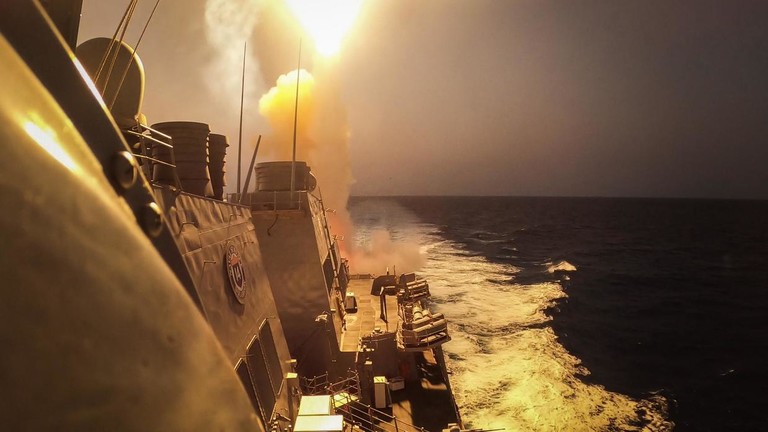
Amidst the ongoing Israel-Hamas conflict, the strategic dynamics in the Red Sea have intensified, with a noteworthy development involving the US Navy. The USS Carney, a guided-missile destroyer, deployed to the region, successfully intercepted and downed a barrage of 14 attack drones allegedly launched from Houthi-controlled areas in Yemen. The unmanned aerial vehicles, assessed as one-way attack drones, were neutralized on Saturday morning, according to a statement from the US Central Command (CENTCOM).
This incident adds to a series of defensive actions undertaken by the USS Carney in response to attacks linked to the conflict that erupted on October 7. The Pentagon has consistently traced these assaults back to the Houthis, asserting that they are “fully enabled by Iran.” Notably, the Red Sea has become a hotspot for such incidents, with several commercial ships falling victim to missile strikes this month.
The gravity of the escalating attacks has prompted major shipping companies, including the likes of Maersk, to adopt a cautious approach by rerouting their vessels. In a significant move, the Mediterranean Shipping Company (MSC) announced on Saturday that its ships would cease transiting the Suez Canal following an attack on its MSC Palatium III container ship in the Red Sea on Friday. While the vessel sustained fire damage and was taken out of service, fortunately, no crew members were injured.
As a consequence of the heightened risks in the region, MSC declared the rerouting of its ships around the Cape of Good Hope until the Red Sea passage is deemed safe. This strategic adjustment is expected to extend voyage times by several days in certain cases. In a statement, MSC expressed the seriousness of the circumstances, stating, “We ask for your understanding under these serious circumstances.”
This evolving situation underscores the multifaceted challenges posed by the ongoing conflict, not only impacting the geopolitical landscape but also necessitating significant adaptations in maritime routes and global shipping practices. The complex interplay of military actions, regional tensions, and their repercussions on international trade routes continues to shape the narrative of this critical period in the Red Sea.
RELATED ARTICLES
- Bible Banned! Shocking New Laws in South Dakota and Georgia
- UN says 70% of Gaza's population faces Catastrophic Hunger
- Russian Ambassador to Washington calls USA "terrorist state", says Conquering of Ukraine will Weaken USA
- USA Issues Threat to Hungary over Continuous Support for Putin
- John Kerry Accuses Russia Of Polluting Too Much with their Ukraine War











